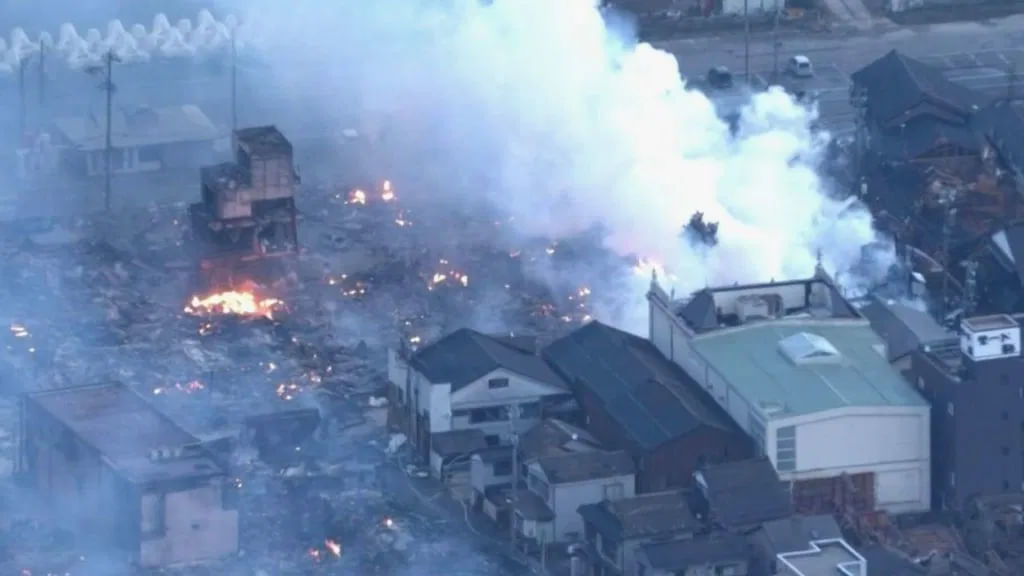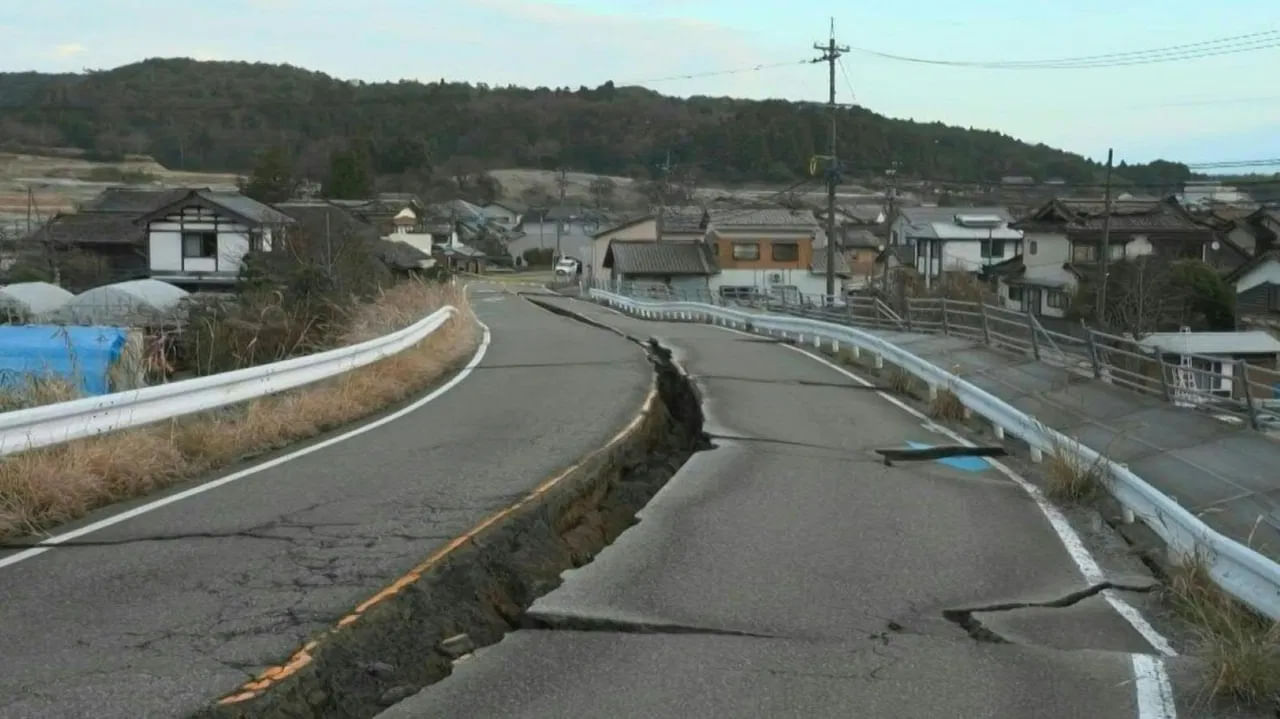[ad_1]
Japan started the new year with a series of strong earthquakes. There were 60 shocks in seven hours. The big thing is that 40 aftershocks were felt within just two hours. There is a risk of a tsunami after the strong tremors of the 7.6 magnitude earthquake in Japan. High waves are rising in the sea. So far 6 people have died. Around one lakh people have been ordered to shift from coastal areas.
Residents in coastal areas have been told not to return to their homes as deadly waves could still hit. The 7.6-magnitude quake sparked fires and collapsed buildings on the west coast of Japan's main island of Honshu. The Japan Meteorological Agency reported more than a dozen powerful earthquakes in the Sea of Japan off the coast of Ishikawa and nearby prefectures shortly after 4pm local time on Monday.
Official spokesman Yoshimasa Hayashi said that at least six houses were damaged by the earthquake and people were trapped inside. A fire broke out in the city of Wajima in Ishikawa Prefecture and more than 30,000 homes lost power, he said.
Instructions for moving to a safe area
The meteorological agency initially issued a major tsunami warning for Ishikawa and a low-level tsunami warning for Hokkaido, the country's northern main island, along the west coast of Honshu. Hayashi emphasized that it is important for people to move away from coastal areas. He said that every minute counts, so move to a safe place immediately.
Risk of aftershocks
Several hours later the warning was changed to a regular tsunami, meaning the sea could still generate waves of up to 3 meters (10 feet). The agency said that in the next few days, earthquake shocks may also occur in this region. Japanese public broadcaster NHK TV initially warned that water levels could reach 5 meters (16.5 feet). The network continued to broadcast warnings after hours as tremors were felt in the area. People were taken to the stadium, where they will have to stay for a few days.
The Japanese army engaged in rescue work
Hayashi said the Japanese military is participating in rescue operations. Bullet trains were suspended in the area, though services were restored in some parts by evening. Parts of the highway were also closed and water pipes burst, according to NHK. Some cell phone services were also down in the area. The meteorological agency said in a nationally televised news conference that more major earthquakes could hit the region next week, especially in the next two or three days.
Japan Earthquake

More than a dozen earthquakes
According to the agency, more than a dozen strong earthquakes have been felt in the region, with the risk of landslides and collapse of houses. Takashi Wakabayashi, an employee at a convenience store in Ishikawa Prefecture, said some items fell off the shelves, but the biggest problem was the large crowds of people who came to stock up on bottled water, rice balls and bread.
Also read: After the earthquake in Japan, 36,000 houses lost power, trains stopped, tsunami
He said that we have three times more customers than usual. A tsunami warning was also issued for North Korea and parts of Russia. Prime Minister Fumio Kishida said the Japanese government has set up a special emergency center to collect information about earthquakes and tsunamis and deliver it to residents immediately to ensure safety.
America will help
US President Joe Biden said in a statement that his administration is in contact with the Japanese authorities and is ready to provide any necessary assistance to the Japanese people. A tsunami warning of Monday's magnitude was not issued due to a major earthquake and tsunami caused by a nuclear plant failure in Japan in March 2011. Government spokesman Hayashi told reporters that nuclear plants in the affected area had not reported any irregularities on Monday. Nuclear regulators said no increase in radiation levels was detected at monitoring posts in the area.
[ad_2]
